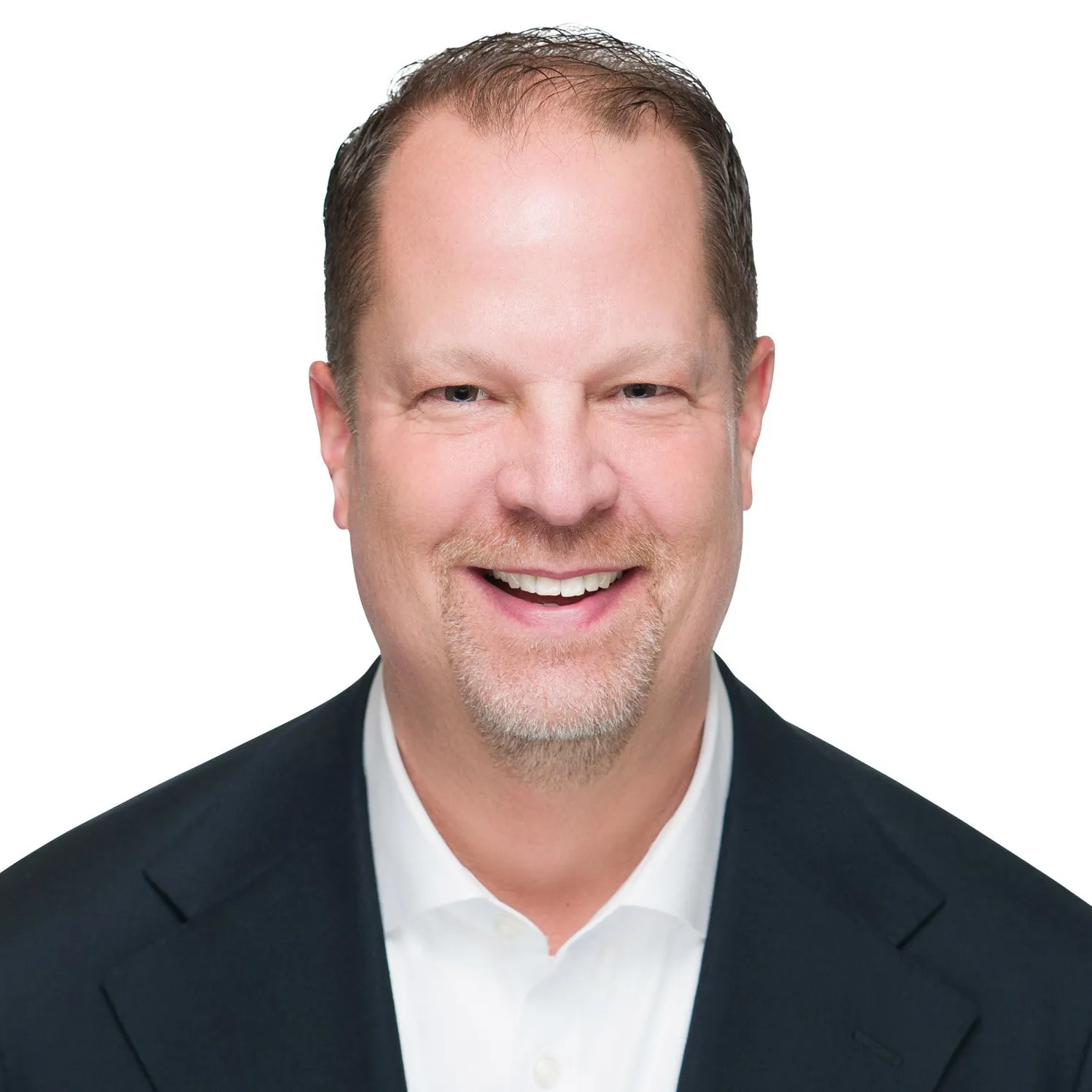Joel Campbell says he didn’t follow the traditional route to becoming a CFO.
After a stint in public accounting in the early ‘90s, he segued into treasury roles over the following two decades. “Treasury is a natural place for people who like corporate finance to land,” Campbell says.
He took on his first role in treasury at Travelers in St. Paul, Minnesota, and would later go on to hold similar positions at Western Union and H&R Block. Campbell landed his first CFO job at Kansas-based fintech firm TreviPay in October 2020, not long after private equity firm Corsair Capital reached a deal to buy the company for $350 million.
First founded back in 1978 as Multi Service Technology Solutions, the company primarily serves B2B sellers and says it now “powers $8 billion in global trade.” TreviPay is headquartered in Overland Park, Kansas, but has offices around the globe.
Under his tenure in the C-Suite, TreviPay has seen its revenue increase by just over 20% each year, Campbell says. In an interview with CFO.com, Campbell breaks down his path to becoming a CFO, the future of accounting and what might come next for him.

CFO, TreviPay
First CFO position: October 2020
Notable previous employers:
- H&R Block
- Western Union
- Ameriprise Financial
This interview has been edited for brevity and clarity.
DAN NIEPOW: You earned your CPA in 1993 and your MBA a decade later. Are you still an active CPA today?
JOEL CAMPBELL: I am no longer an active CPA today. I allowed my license to lapse probably now 20-plus years ago — on purpose, because I was focused on many other things. In retrospect, now, as I’m getting closer and closer to the end of my career, it probably would have been smart to keep up my CPEs and keep it moving forward. But I’m fortunate to have some really strong technical accounting folks on my team at TreviPay. I don’t need to spend a lot of time there because I have that expertise on our team.
We’ve seen several states change CPA licensure requirements lately. What are your thoughts on changing state regulations and the future of the CPA?
I’ve had two thoughts around that. For one, since I graduated in the early 1990s, universities have changed their curriculum to focus on the exam. When I went through my undergrad, they were not heavily focused on passing the CPA exam right after graduation. I was one of the few who took my own review course after I graduated and passed the exam in a couple of years.
But now I think the really cool thing about accounting bachelor’s programs is that when you get through them, you are ready to take the CPA exam and pass at least half of it, if not all of it. That’s an interesting change in the way universities have looked at that program itself.
Secondly, I would say the CPA designation is still extremely important. It’s one of the more rigorous professional certifications out there, along with the CFA or some other ones. I think that rigor is really important, and I think the challenge will be: Can we still find and motivate students to want to become CPAs? Can we make the profession interesting enough? There are fewer and fewer CPAs out there because it is rigorous, and you have to work at it.
TreviPay is your first CFO job. How does it differ from your past experiences in finance? How does being a CFO compare to being a treasurer?
Many people in finance often project forward a few years down the line. Where could I be, and how do I get there? I always looked at those people who were years ahead of me and tried to emulate what they had done — whether it was an MBA or more certifications. For me, having worked with some really strong CFOs over my 27 years at large public companies, I got a taste for what it would be like to be in the role.
But what I would tell you is that being in the role is very different than projecting yourself into the role. Many people who go through that process realize that once you have the responsibility, it’s much broader. It’s both broad and deep. Your depth of specialization for me in treasury was extremely important to get into the role, but the breadth of what I do as a CFO is completely different than the things I dealt with as a treasurer. And I have broader responsibilities here as a “CFO plus.”
What does it mean to be a “CFO plus”? What sorts of things are CFOs being asked to do that they might not have been expected to do in the past?
In many of our executive roles at TreviPay, we all do lots of different things. We’re smaller and a bit more nimble, and there’s a lot to do under private equity ownership. I’m overseeing all the traditional finance functions — accounting, FP&A, tax and treasury — all the normal things you would expect.
In addition, I’m involved in overall company strategy, global go-to-market strategy, M&A and facilities and procurement. Most recently, I just took over HR. There are some similarities in overseeing the capital management side of the balance sheet and the human side, but they’re also quite different.
How has being a chief risk officer at a company like H&R Block framed your perception of risk now that you’re a CFO?
It’s made me much more in tune with the broad enterprise risks that face a business. It’s also given me a much better appreciation for specific areas of risk, like cyber risk. Now, I have a hand in influencing how we think about risks, how we might mitigate risks. It’s given me a deep understanding of how to do that.
You’re past the tenure of a typical CFO. What’s kept you at TreviPay nearly five years now?
I’m genuinely interested in helping the business grow. Nothing replaces hard work. I preach this to my team all the time. It’s also about leadership and relationships. I have a strong relationship with our CEO, and I think that’s given me some staying power at TreviPay. The relationship between the CEO and CFO has to be sacrosanct.
If you had to step away — or received an offer you can’t pass up — do you have a succession plan in place at TreviPay? What does that look like?
We talk a lot about succession planning at the executive team level. We have plans in place, and we review them every year. We’re regularly assessing the talent that sits below us. Are they ready for the next role in the next few years or months? I have a couple of strong vice presidents in finance who sit below me. Both of which have the capability to be a CFO if that’s the direction they’d choose to go. You always look at the market, too. The market for CFOs is pretty strong.





